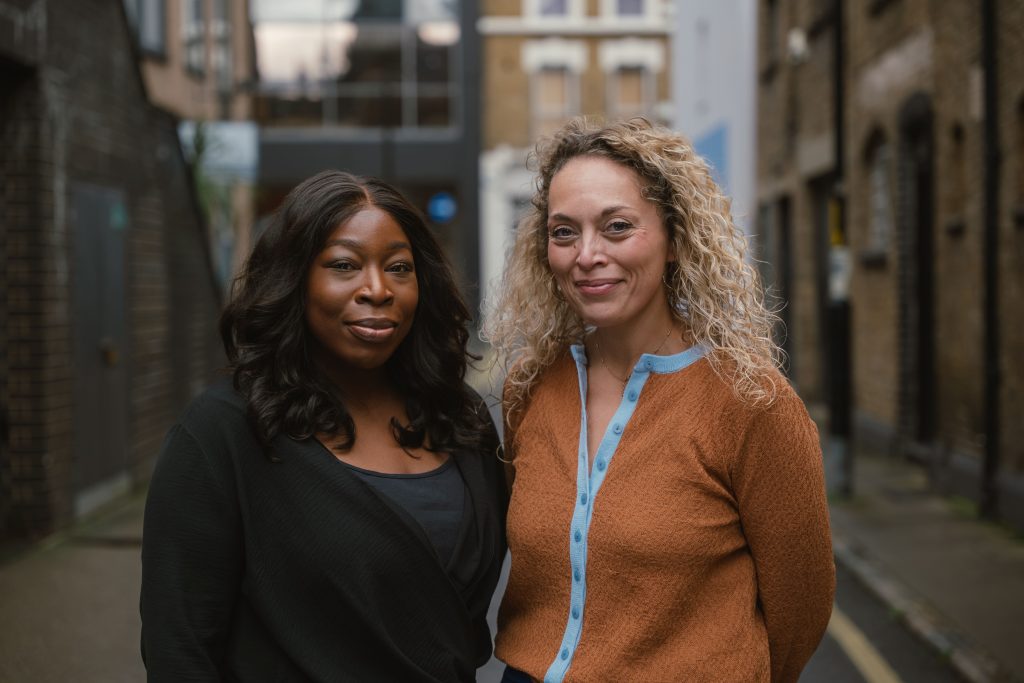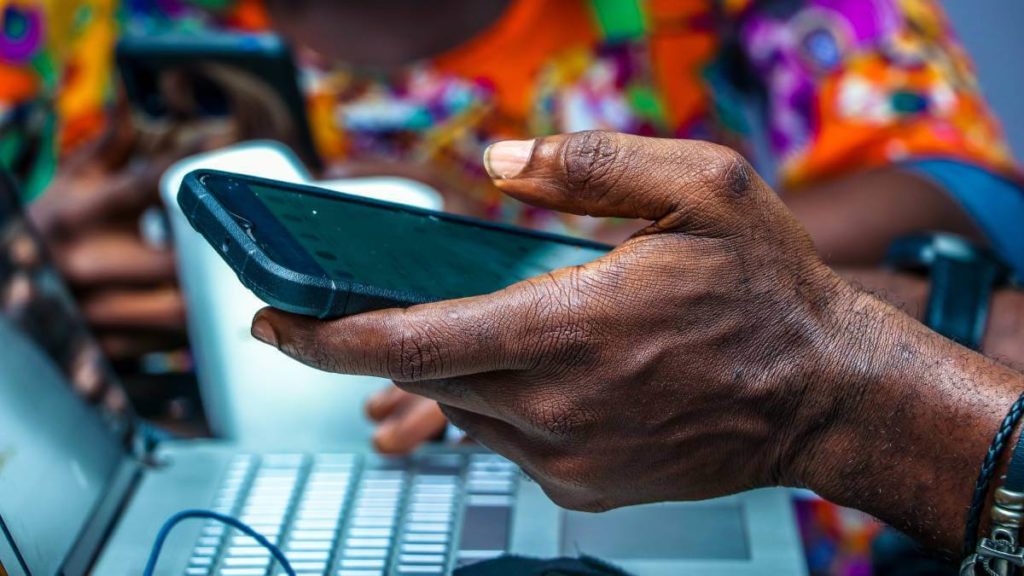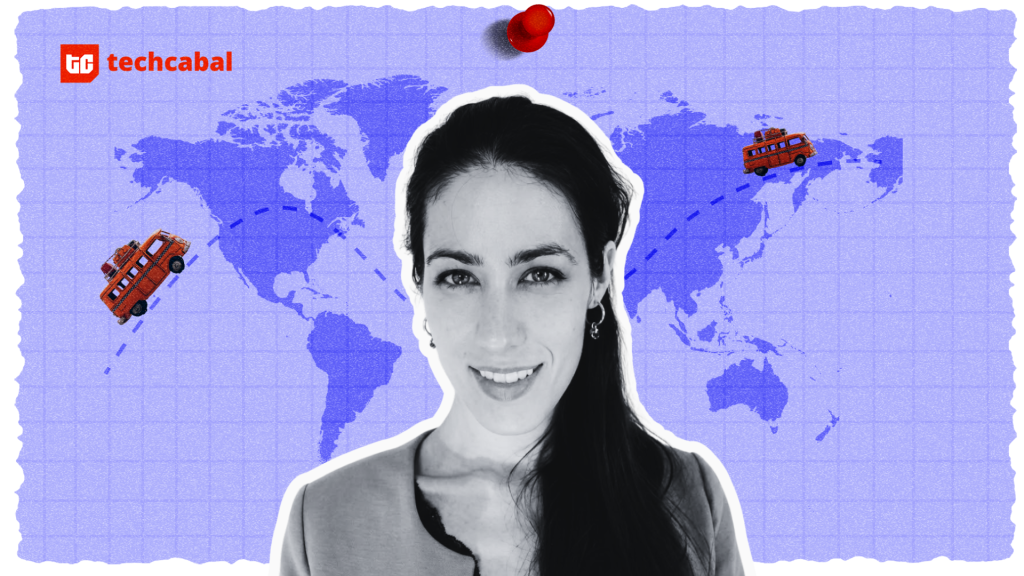How can a single line of code fix poverty? At first glance, it seems improbable but if Uber can help people get chauffeur driven in cars they don’t own and AirbNB allows you to stay in homes you don’t own then, nothing is impossible. Just as these platforms revolutionized their industries, StakeCut is redefining how Africans can build businesses without capital or inventory.
Stakecut is helping people start a business without holding or investing in Inventory. Imagine how helpful this will be for a graduate from a poor background who has no money to invest in inventory and is able to start a laptop business online without owning a single laptop. All they need to do is sell a vendor’s laptop and get paid a commission. This is what we do at StakeCut, driven by the “StakeCut Pixel.”
“We wanted to build something that would allow people to escape poverty without needing capital or inventory,” Czar Nonso, co-founder & CEO of StakeCut, explains. “The idea that a single line of code could achieve that was both daunting and exciting, but we knew it was possible.”
They have tested this idea using online courses and intend to transition into allowing more physical products on the platform in the next 12 months.
Background and Inspiration: A Vision for Empowerment
StakeCut’s journey began with a simple but powerful idea. Nonso Czar Nnamani (CEO) & Joshua Mba (CTO – the cofounders, inspired by the success of ClickBank, the 87th top retailer in North America, realized the potential for an African version of this eCommerce and affiliate marketing platform. In a continent where up to 40% of the population lives below the poverty line, starting a business is an insurmountable challenge for many. StakeCut was conceived to bridge this gap by providing an easy and accessible way for Africans to start their own businesses.

“We were having dinner one night—just chicken and chips—and we started talking about how we could create something similar to ClickBank, but specifically for Africans,” Czar recalls. “We wanted to give people the tools they needed to succeed without the barriers that typically hold them back- a product, a website and full sales education.”
Over that dinner, the co-founders—drawing on their combined expertise in marketing and tech—decided to build an MVP (Minimum Viable Product) for what they envisioned as the future of business in Africa. Since then, StakeCut has grown to 400,000 users across seven African countries in just two years.
Early days
The path to success wasn’t without obstacles. One of the primary challenges StakeCut faced was the negative perception of affiliate marketing in Africa.
“People hear ‘affiliate marketing’ and they think of scams or get-rich-quick schemes,” Joshua explains. “We are working hard to change that, because we believe that this business model is the future of business.”
The platform’s success with digital products like online courses has proven that the model works and now the platform is gearing up to expand into physical products, allowing users to sell goods they don’t own and earn commissions, all through the StakeCut platform.
The StakeCut Pixel
What sets StakeCut apart from other digital marketplaces is its innovative use of technology. Central to this is the “StakeCut Pixel”—a single line of code that, when placed on a website, allows users to receive payments from customers in up to seven African countries. The StakeCut Pixel tracks sales, identifies who recommended the product, and provides detailed reports on a user-friendly dashboard. Most importantly, it ensures that users receive their commissions every week, a practice StakeCut has maintained consistently for two years.
“Our goal was to fix poverty in Africa with one line of code,” Czar says with pride. “The StakeCut Pixel is the culmination of that vision—it’s simple, powerful, and it works.”
Success Stories: Changing Lives Across Africa
StakeCut’s impact can be seen in the numerous success stories from across the continent and their Twitter handle: @StakeCut has an abundance of these testimonials.
When Jomoni Sophia started using Stakecut, she was in her 300 level at the university – deep in debt, this soon changed because the first week she started using the platform she was able to make N100,000 ($66) and she has now gone on to make even more.
Abdul Mohammed, a creator from Ghana, launched his digital course on StakeCut and earned GHC 1,500 in his second week.
In Nigeria, Awase Chia used StakeCut to raise money for his business, earning ₦856,000 ($700+) in just one week. Mercy Enobong had to leave her ₦15,000 ($21) per month job to focus on selling on StakeCut, making about $498 in a single month.
Czar recalls the moment they realized StakeCut was changing lives: “Every time we hear one of these stories, it reaffirms why we started StakeCut in the first place. There are 40 million other people in Africa; just like Sophia, Abdul and Awase that we intend to take Stakecut to and take out of poverty.”
The stories go on. Pelaiah Ejinwa, a former Uber driver, switched to StakeCut after a near-fatal accident, earning his first $100 within weeks. Dr. Nelson Obinna, an optometrist, supplemented his ₦120,000/month ($171) income by earning $2,300 (₦1.3 million) on StakeCut in less than five months—a sum equivalent to his entire yearly salary.
Business Model: A User-First Approach
StakeCut’s revenue model is simple and user-focused. The platform earns money only when its users earn, charging a 2% payout fee for affiliates and 10% for creators, totalling 12%. There is also a free level and a paid plan, with additional revenue generated through Forex Spreads and Ad space placements on the platform. According to Czar, “We wanted our pricing to reflect our commitment to our users. We don’t make money unless they do, and that keeps us focused on delivering value.”
The StakeCut Team: Compact and Efficient
With a team of just eight members, StakeCut operates with remarkable efficiency. The team has been working remotely for the past two years but is now planning to move into a physical office as they prepare to scale the product further.
Market Position and Expansion: A Vision for the Future
StakeCut’s growth in the African creator economy has been impressive. Now active in seven African countries and processing close to a billion naira in sales, the platform’s success is driven by a clear understanding of its target market: young Africans with little to no resources who are eager to start their own businesses but face significant obstacles due to their circumstances.
“The biggest problem in Africa is poverty, and the solution is selling,” says Czar. “But how do you sell something when you don’t have startup capital? That’s where StakeCut comes in—we’re helping millions of Africans take a stake in already established brands and businesses – so they can sell digital and physical products for commissions.”
The founders have ambitious plans for StakeCut’s future. Their goal is to become the number one retail online store in Africa, driven by the 500 million Africans living below the poverty line. They believe that selling is the key to escaping poverty, and StakeCut provides the tools and support to make that possible. With over 400,000 users already on the platform, the team is focused on reaching even more of the continent’s underserved population.
Conclusion: A Stake in Africa’s Future
StakeCut is more than just a digital marketplace; it’s a platform that empowers Africans to take control of their economic destinies. By providing the tools, education, and support needed to start a business, StakeCut is helping to solve one of Africa’s most pressing challenges—poverty. And it’s doing so with a single line of code.
“We’re not just building a business—we’re changing lives,” Czar concludes. “Already we have over 400k people taking their stake & cut at StakeCut, and our target is to reach even more people.”














